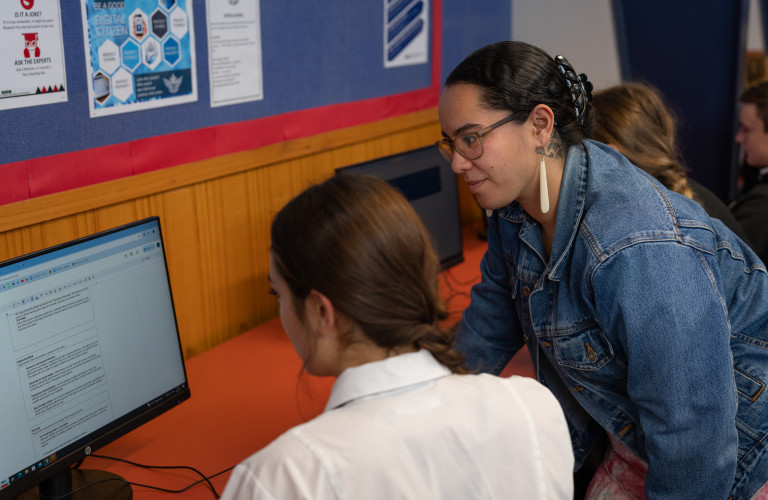Opposition to gutting the independence and core functions of the Teaching Council
An open letter to the Minister of Education from PPTA Te Wehengarua, , NZEI Te Riu Roa,New Zealand Principals’ Federation, New Zealand Area Schools Association, Aotearoa Educators Collective, Teacher Education Forum of Aotearoa New Zealand, He Whānau Manaaki Kindergartens, Catholic Education Office, Montessori Aotearoa New Zealand, New Zealand Pasifika Principals’ Association, and New Zealand Area Schools Association.

Tēnā koe e te Minita,
As peak bodies in the education sector representing tens of thousands of teachers working in schooling and ECE, we strongly oppose your decision this week to gut the independence of the Teaching Council and remove its core standard-setting functions.
Our first and most fundamental ethical and professional obligation is to our ākonga, past, current and future. Our standards and codes have been developed and set, for and by the profession, under the oversight of an independent Teaching Council. That independence is critical because standards must reflect widely and deeply held aspirations and the expectations society and teachers themselves place on the profession both for today and for the long-term.
Your announcement claims to strengthen initial teacher education (ITE) and workforce governance, but the actual changes represent a fundamental shift in professional autonomy and independence.
Late last year, you consulted with our organisations about a “lift and shift” of Teaching Council responsibilities for initial teacher education. We said we wanted ITE strengthened, with more investment and greater sector input, but that the Teaching Council was the appropriate body to have oversight of our profession’s entry and training requirements.
We said that direct political control of professional programmes and standards by Ministers through the Ministry would be an over-reach and was tantamount to political interference. We said moving oversight and approval of initial teacher education programmes to the Ministry of Education would remove it from oversight by an independent statutory body governed by a council jointly elected by teachers and appointed by the Minister – and would therefore reduce, partially or wholly, both the professional independence and voice of teachers in terms of who determines teacher education standards.
We said no evidence has been provided by the Ministry about how it could improve initial teacher education, and it has neither the capability, capacity nor confidence of the profession to take on this role.
You listened to our feedback and instead decided to appoint the Secretary of Education as an advisor to the Council.
Now, without any evaluation of the effectiveness of that decision, any credible evidence or research to back up your assertions, any outcomes from the investigations you have commissioned into the Council’s operations, and without any consultation with the 100,000+ teachers and teacher educators whose fees have paid for the Council over decades, you have abruptly announced changes to legislation silencing our voices. Under your changes, the Ministry will assume responsibility for all professional standard-setting functions, including standards for teacher education programmes, Teaching Standards, criteria for registration and certification, and setting the code of
conduct. The Teaching Council will retain only registration, quality assurance, and discipline functions.
Our critical concerns are:
1. Loss of professional and democratic voice
The proposed legislation undermines teachers’ professional autonomy and selfregulation of our own profession. It communicates a distrust of the teaching profession and risks undermining the reputation of teachers in the public’s eye.
Teacher voice is being diminished. The teacher educator-elected representative on the Council’s governing body is being removed immediately and replaced by a Ministerial appointment. Instead of 7 elected members of a 13-member council, there will be only three elected members, with the remaining members of a smaller council Ministerially appointed.
The Teaching Council's legislative responsibility to provide direction for teachers, enhance the status of the profession, promote best practice, and foster development of the profession will be removed. This affects every teacher, not just those in initial teacher education.
2. Independent professional body oversight of teaching standards replaced by direct political control
It is unclear how the Teaching Council will continue to be the independent professional body for teachers when its only remaining functions are registration and disciplinary functions. When the Ministry writes both the professional standards AND the teachers’ code of conduct, our ability to speak out professionally in the interests of ākonga and quality teaching and learning becomes subject to direct political control. This is unprecedented.
3. Te Tiriti obligations at risk
Current Teaching Council standards explicitly require teachers to honour Te Tiriti o Waitangi, design culturally responsive learning, and understand the unique status of tangata whenua. By transferring standard setting to the Ministry, the Government creates a mechanism to rewrite these requirements in line with their stated policy of downgrading Te Tiriti in education.
Fundamentally, your decisions mean principals, education leaders and teachers will lose the ability to have a say in the standards that we must follow. The Teaching Council has been set up as an independent entity so that our professional codes and standards are developed and owned by the teaching profession itself. They should not be subject to the political whims of any particular government. Moving the teaching code and standards to the Ministry puts the independence of the teaching profession and initial teacher education providers, and ultimately the quality of teaching and learning for our ākonga, at risk.
Last modified on Tuesday, 11 November 2025 11:22
